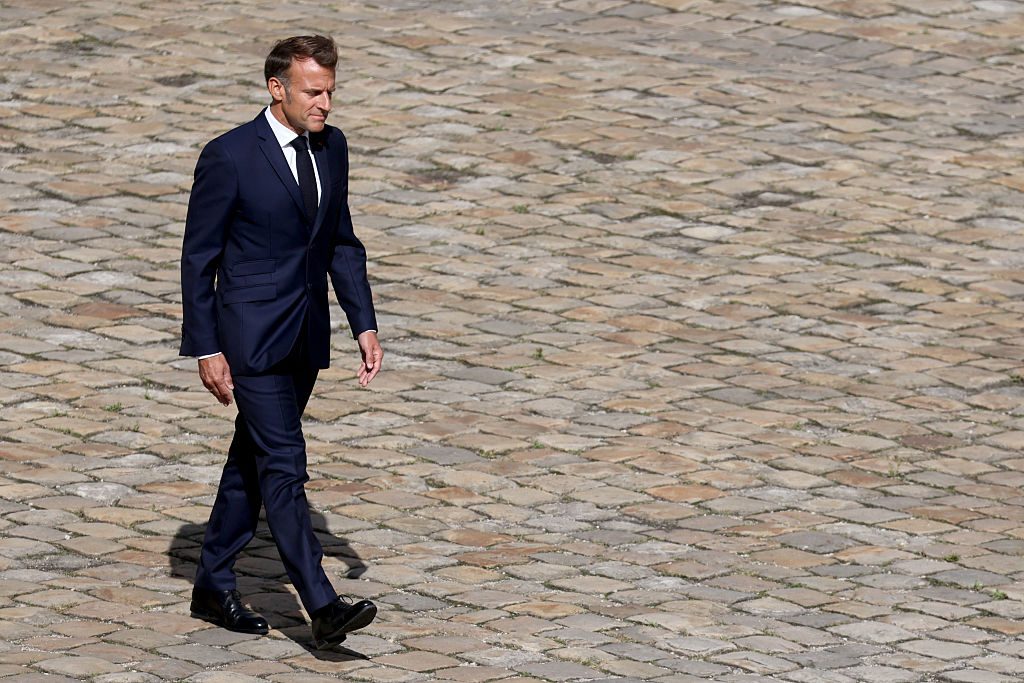Has Emmanuel Macron gone mad? Following the resignation of Sébastien Lecornu as prime minister and the collapse of his day-old government, hopes for a stable new government rest on the cooperation of the Socialists and the Republicans — the parties to Macron’s immediate Left and Right. So when the Socialists insisted that Lecornu not return as prime minister and the Republicans did likewise, what did Macron do? He reappointed Lecornu as prime minister.
On Saturday, the Republicans decided to quit this French farce, refusing to join the new government. The Socialists are still hedging their bets, but even if they did choose to bunk up with Macron’s centrist allies, the two blocs wouldn’t have enough deputies to command a majority in the National Assembly.
So while a second Lecornu government may last longer than the first, it’s unlikely to be much longer. Already, there are reports that he’s threatening to resign (again).
The most inexplicable of Macron’s decisions came in June last year when, seemingly on a whim, he chose to dissolve the National Assembly. In doing so he swapped a parliament in which his allies were short of a majority (and reliant on moderate conservatives to pass laws) for one in which his most implacable enemies on the Right and the Left gained ground at the expense of the centre. This was a completely unforced error, one that has condemned France to short-lived, unstable governments ever since.
So why did he do it? The answer lies in the nature of the Macron project. It’s a mistake to think of him as a French Lib Dem. A much closer comparison is to Tony Blair, Bill Clinton or Gerhard Schröder: the founders of what the British called the Third Way and the Germans Die Neue Mitte (“the new middle”).
The Macron phenomenon was a belated French answer to this genre of progressive politics: rooted in the centre-Left (Macron was a member of the Socialist Party), but wedded to neoliberalism in economics and liberal interventionism in foreign policy. One might also mention Macron’s tough-on-crime tendencies (all in the name of progress, of course) plus the monarchical manner that distinguishes a Third Way leader from a standard-issue social democrat. At the same time, those regal airs serve to underline a disdain for actual conservatism and a total contempt for the populist Right.
Like, Blair and Clinton before him, Macron has pursued a strategy of triangulation — not so much splitting the difference between his opponents on the Left and the Right, but rising above both sides by pinching their best ideas and highlighting their weaknesses. A difference, though, is that unlike Blair and Clinton, who both had well-established political parties under their control, Macron has relied on a hastily assembled new political movement that has lost support since its initial breakthrough in 2017. Without a centrist majority after 2022 and an even weaker position since 2024, Macron has been dragged down from his presidential pedestal and into the messy politics of a hung parliament.
Furthermore, in seeking the involvement of other parties to support his governments, the centre-Right has, up until now, been more cooperative than the other side. For Macron, this is profoundly uncomfortable because as a progressive his inclinations clearly lie with his former comrades. The reason why he keeps on blowing up French politics is because he wants to detach the Socialist Party from the rest of the Left and thereby forge a Gallic version of New Labour. Pursuing this fantasy has doomed his presidency.
While it has always made sense for Macron to seek common cause with the centre-right, his sensibilities lie with his former comrades. The reason why he keeps on blowing up French politics is because he wants to detach the Socialist Party from the rest of the Left and thereby forge a Gallic version of New Labour. It’s a hopeless fantasy that has doomed his presidency.
Indeed, his legacy is now at risk. His greatest policy achievement — the reform of France’s unaffordably lavish pension system — has become a bargaining chip in negotiations to form a government. Yet more seriously, his bid to keep the populist Right out of power is faltering. In the latest Toluna-Harris poll for the 2027 presidential race, Jordan Bardella (who is running in Marine Le Pen’s place) has a 20-point lead over his nearest rival. Furthermore, the candidate best-placed to beat him, Édouard Philippe, is losing support.
Emmanuel Macron once represented a new hope for the Third Way, but right now he’s heading for a dead end.











Join the discussion
Join like minded readers that support our journalism by becoming a paid subscriber
To join the discussion in the comments, become a paid subscriber.
Join like minded readers that support our journalism, read unlimited articles and enjoy other subscriber-only benefits.
Subscribe